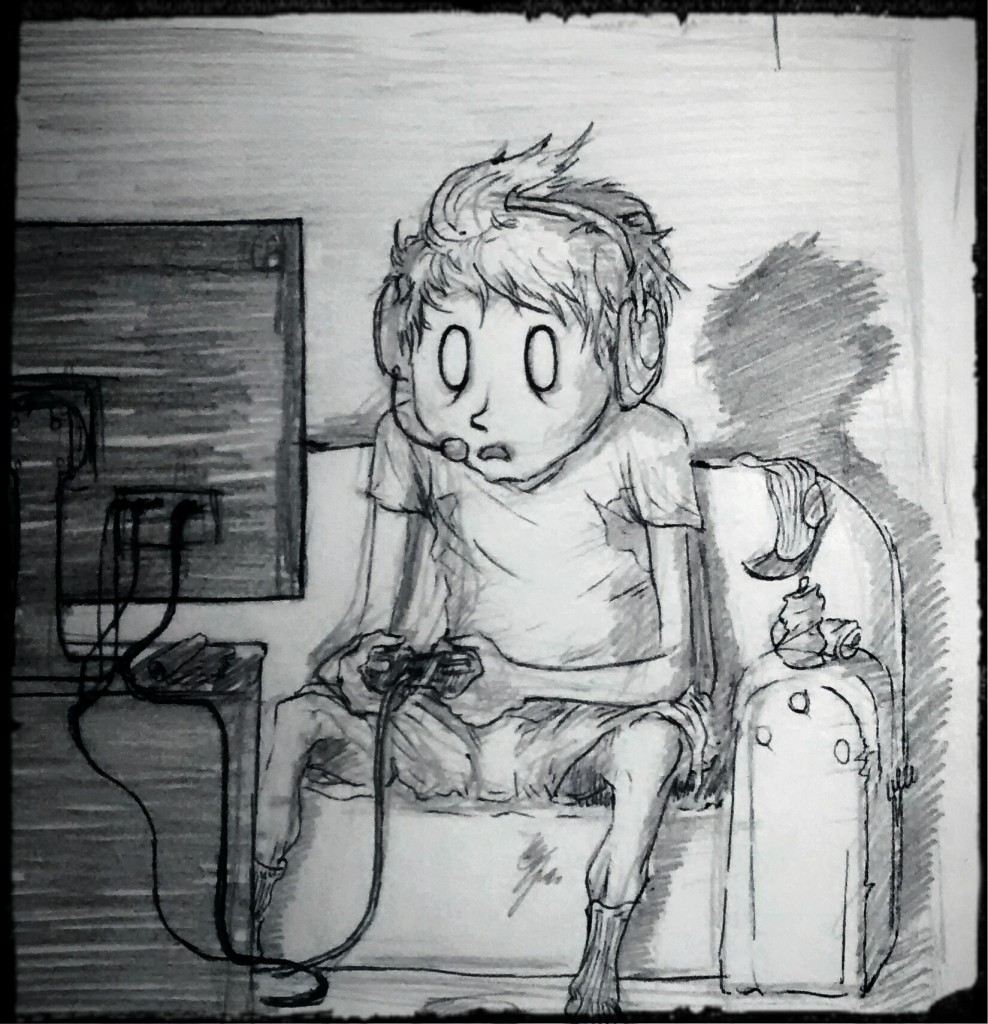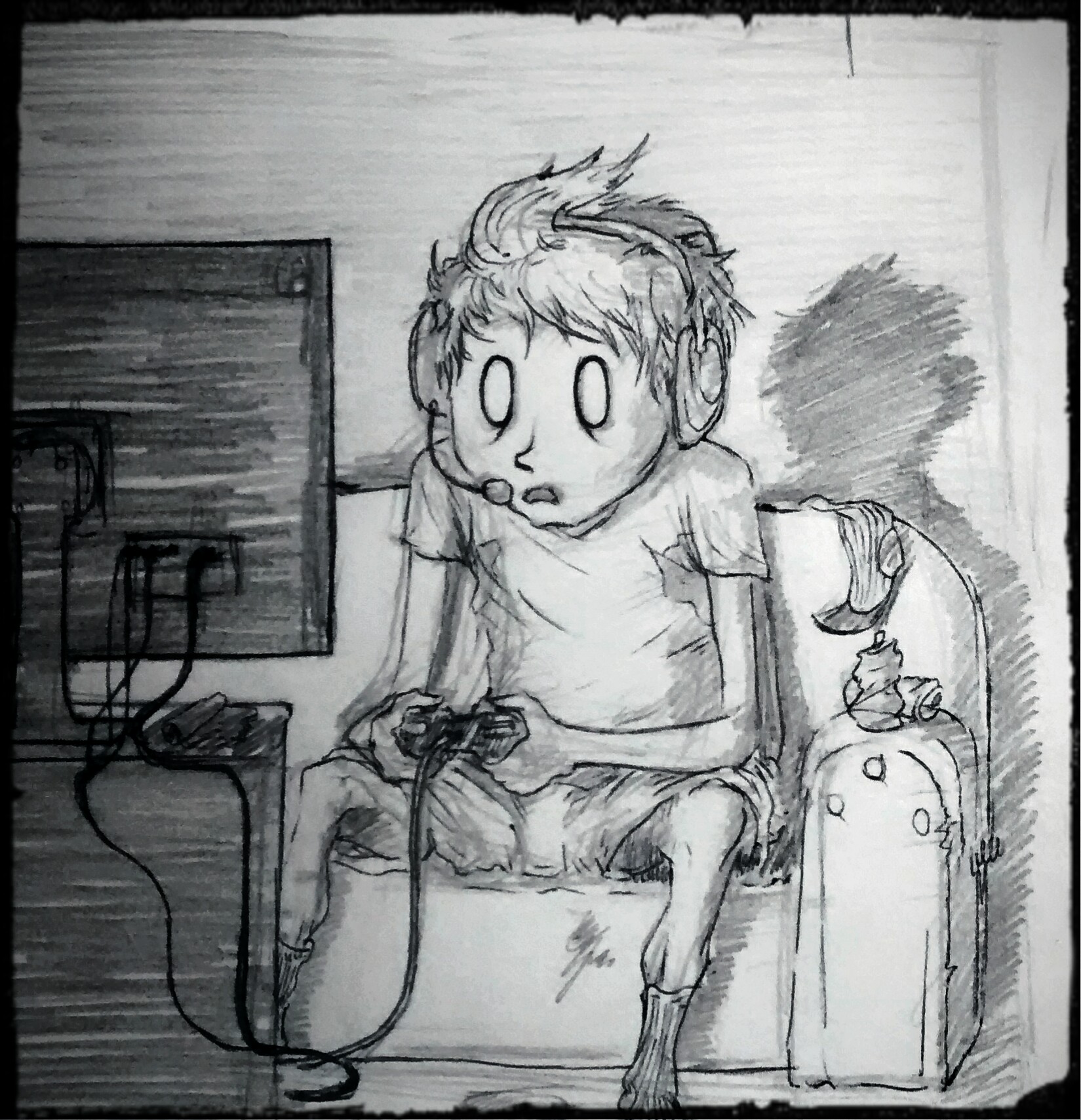By Anthony Biondi (The Cascade) – Email
Print Edition: February 4, 2015

It’s been a long time since Xbox first implemented the achievement system. It was strange at first. Were the points a currency, or were they just points? Turns out they were nothing more than just points — bragging rights. Now it seems everything has some kind of achievement system, some way of logging all the cool things you can do in a video game. They give goals, mark waypoints of progress, and show off how amazing players are at the games they play. In a way, Microsoft added something revolutionary to gaming. But, as with all things, there is a cost.
A website sponsored by the Camp Recovery Centre in California states that video game addiction is, as of yet, an unrecognized mental disorder. This is supported by numerous other sources, journals and medical sites. There is a growing trend and appreciation for a condition in which players of video games quickly become detached from their realities.
An article on the Week recorded one subject dedicating upwards of 12 hours of play time a day. These numbers may be extreme for some people, but I have seen it firsthand: people with responsibilities — not for themselves, but for dependents as well — waste hours in front of a screen, ignoring everyone and everything around them. It can become damaging. There is no clear definition of how many hours need to be played in order to be addicted, but an article by Tech Addicts defines it as, “ … excessive play which results in negative emotional, social, relational, educational, or career-related consequences.”
Many people don’t seem to recognize that video games are manufactured to do this. It’s something I’ve come to understand as a false sense of achievement. At the end of the day, when the game is beaten and the player has completed the challenges, none of those rewards carry forward into reality.
Our documented achievements keep us playing by giving us goals we must reach. The appeal of having something to show for our efforts can play a big part in diluting our sense of reality and responsibility. There is a certain amount of work and reward inherent in playing games: you die and restart over and over until the challenge is complete. Once completed, there are usually prizes to make characters stronger or give the player more options.
Playing out fantasies in games is not a new concept to society. Novels and stories exist to bring their audience into a new world away from the reality they come from. Video games are just one of the newest media on the scene to give audiences this experience, only they have an element of control; players can interact with the virtual world, control it, and manipulate it. They empower themselves, or build creations born of their imaginations. It can be easy to get lost in these kinds of scenarios. I’ve wasted countless hours on games such as Minecraft or Monster Hunter.
However, for some people, the false sense of achievement — the feeling that they have accomplished something with their time — dominates above all else, and the Pavlovian reward system keeps players playing. There have been studies as to the benefits video games have on players’ health, but too much of a good thing can go awry.
It’s just something to keep in mind as we all begin to head into the middle of winter semester. The rewards of a video game do not carry over into reality. They are separate worlds, and neither deserve to be ignored entirely. There is help available to those that are addicted to video games. A quick Google search will find you all the support you or your loved ones will need. There are limits, however, since it is not yet a recognized condition.
Godspeed, and happy, healthy gaming.


